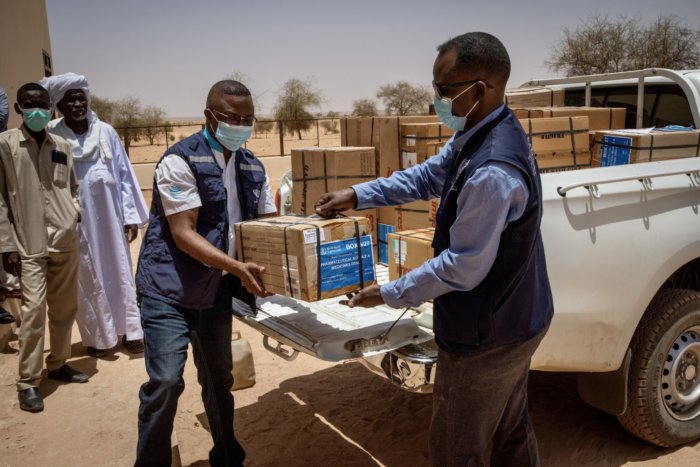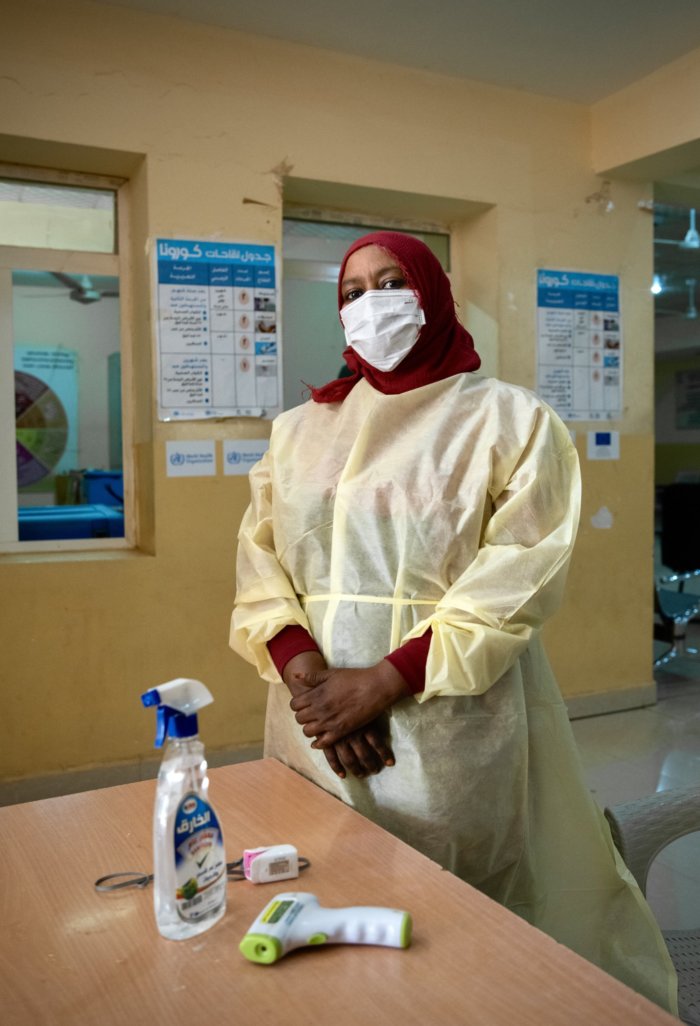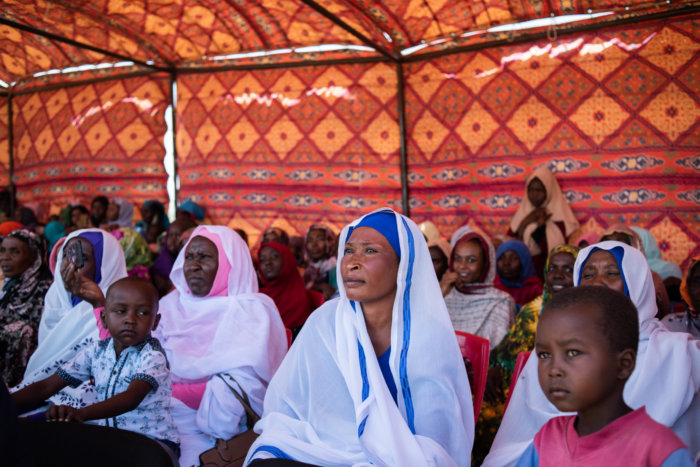Mobilizing for health amid conflict in Sudan

© WHO / Lindsay Mackenzie
WHO has mobilized its emergency operations and is working to maintain health services amid catastrophic fighting.
Situation on the ground
Fighting broke out on 15 April between Sudan’s army and the Rapid Support Forces (RSF), a paramilitary group that had previously formed part of the military administration. In Khartoum, the country’s capital city, indiscriminate shelling and gun battles have rendered large parts of the city unsafe. A series of ceasefires has been only partially honored. The conflict has also seen intensifying attacks in the Darfur region, where people have reported looting, attacks, murders and sexual assaults by armed militia.
The Sudan Federal Ministry of Health reports that as of June 14, 2023, the number of people killed during the fighting stood at more than 800 and injuries stood at more than 6,000. An estimated 24.7 million people — more than a third of the total population — require humanitarian assistance.
Civilians are being killed and injured, lack food and clean water and cannot safely go to work or about their everyday lives. The price of food, and everyday essentials such as soap, transport and fuel has increased sharply. Prior to the fighting, the price of basic foods had already risen dramatically, in part due to the country’s heavy reliance on grain from Russia. The conflict has forced the internal displacement of 1.5 million civilians and the evacuation of more than 500,000 people into the neighboring countries of Egypt, Chad and South Sudan and across the Red Sea into Saudi Arabia.

© WHO / Lindsay Mackenzie
How is healthcare impacted?
The situation is catastrophic. Medical supplies are running out, and in many hospitals, they have already run out. WHO reports that health staff and facilities – including hospitals, ambulances, and medicine warehouses – are being attacked, looted and used to launch attacks. Nadia (not her real name) was able to flee the fighting in Khartoum, and spoke to WHO about the impact of the conflict on people seeking healthcare.
“I had friends desperately searching and asking for life-saving medications for their sick parents. Another friend’s father with heart problems could not reach a hospital and his daughter took him on an 8-hour journey out of Khartoum to get him into the intensive care.
Pregnant relatives could not go to their regular appointments, and some of them had to give birth at home in horrible conditions; a close friend’s father was not able to get to a dialysis centre due to intense clashes in our neighbourhood and his condition rapidly deteriorated until his daughter was able to get him to the borders then evacuate him to the UK.”
She says similar stories can be heard in many households in Khartoum.
- More than 100,000 children aged under five with severe acute malnutrition with medical complication are in need of specialized care at stabilization centres.
- Fuel to run generators amidst widespread blackouts is in desperately short supply, placing hospitalized patients and perishable medical materials, such as life-saving blood bags, at very high risk. Blood and cold-chain-reliant vaccines need to be destroyed without reliable refrigeration.
- In areas where fighting is ongoing, particularly in and around Khartoum, approximately four out of every five health facilities are closed due to damage or because it is too dangerous to operate normal services. Hospitals and health facilities have come under attack and occupation, with reports of shelling and unverified reports of hospitals treating injured fighters being targeted deliberately.
- There are reports of a military occupation of the National Medical Supply Funds (NMSF) warehouses, where medicines for the entire country, including malaria medicines, are kept; and where the national pharmacy for chronic diseases is located.
- Lack of emergency health care raises the risk of preventable deaths. Furthermore, people with chronic diseases including diabetes, cancer and kidney disease are struggling to get life-saving medical care.
- WHO estimates 90,000 women will give birth in the next three months and are in danger of delivering without medical attention.
- Damage to water systems is forcing people to resort to drinking river water and other contaminated sources, putting them at high risk of diarrhea, cholera and other water-borne diseases.
- The threat to mental health is high for people living with, and escaping from, a highly dangerous and traumatic situation.

© WHO / Lindsay Mackenzie
What is WHO doing to support the people of Sudan?
WHO has relocated its humanitarian hub to Port Sudan on the Red Sea coast to support people in Sudan, has established a coordination hub in Cairo to support a regional response, and has:
- Released US$ 3.6 million from its Contingency Fund for Emergencies
- Sent medical supplies worth US$ 1.6 million, addressing trauma injuries, chronic diseases, and infectious diseases, via all possible means.
- Distributed 30 metric tons of supplies and medicines to hospitals prior to this recent outbreak of violence, and provided training in mass casualty management to hospital personnel
- Monitored and reported attacks on health care facilities and professionals.
In the coming days and weeks
Specialist staff for trauma care, public health, logistics and security are available to surge into Khartoum once conditions allow. In collaboration with local authorities, WHO will support the surveillance of and response to outbreaks, including measles, cholera, polio, malaria and dengue.
WHO will continue to monitor and report attacks on health care facilities and health professionals.
You can help WHO provide drugs and supplies to treat the injured and deliver other life-saving health services in Sudan. Please donate here.

